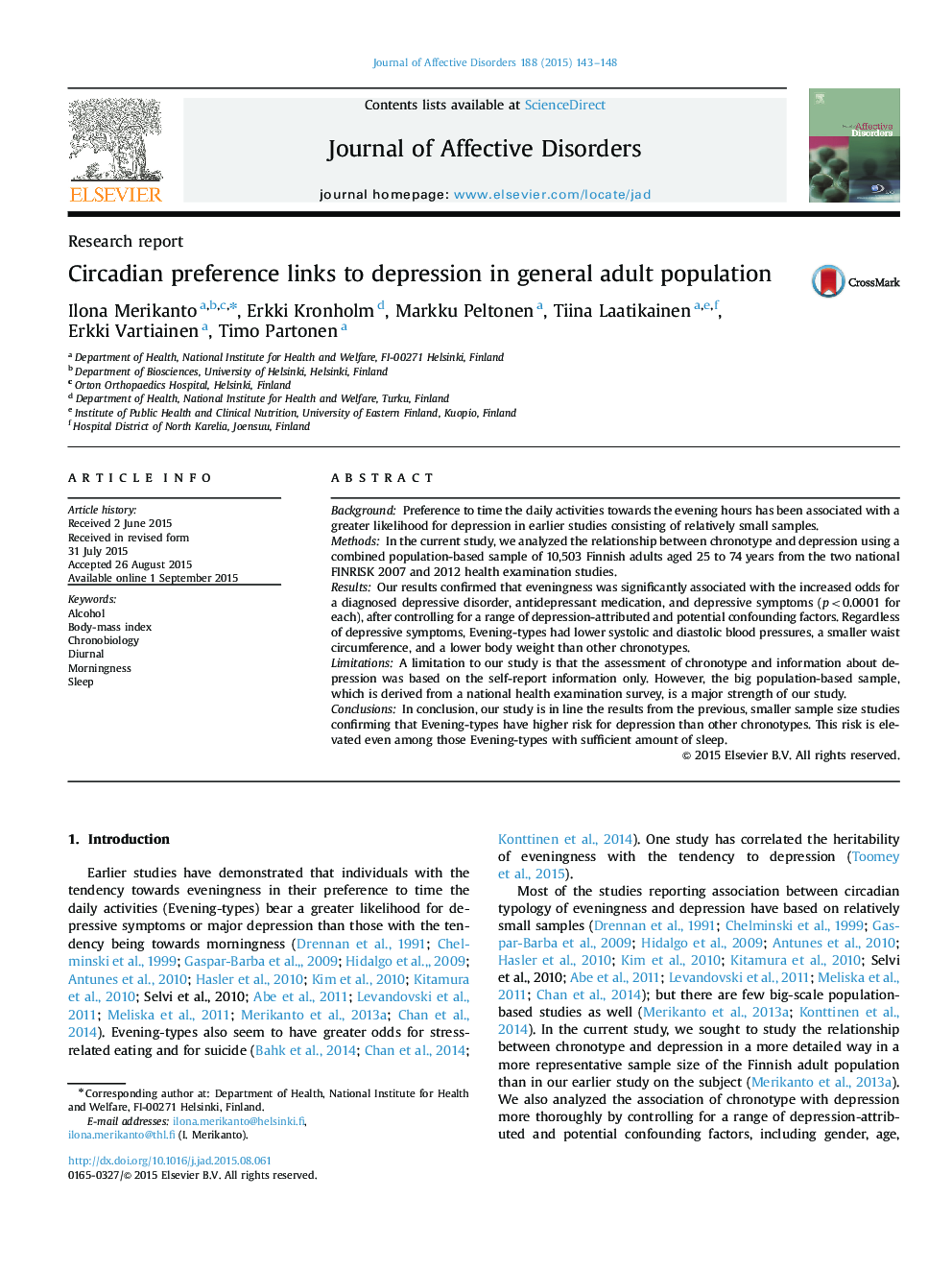| Article ID | Journal | Published Year | Pages | File Type |
|---|---|---|---|---|
| 6231047 | Journal of Affective Disorders | 2015 | 6 Pages |
â¢Our study has big population-based sample from national health examination survey.â¢Analyses have been controlled for a range of depression-linked confounding factors.â¢Eveningness associates with depression after controlling for confounding factors.â¢Sleep problems do not solely explain higher depression risk among Eevening-types.
BackgroundPreference to time the daily activities towards the evening hours has been associated with a greater likelihood for depression in earlier studies consisting of relatively small samples.MethodsIn the current study, we analyzed the relationship between chronotype and depression using a combined population-based sample of 10,503 Finnish adults aged 25 to 74 years from the two national FINRISK 2007 and 2012 health examination studies.ResultsOur results confirmed that eveningness was significantly associated with the increased odds for a diagnosed depressive disorder, antidepressant medication, and depressive symptoms (p<0.0001 for each), after controlling for a range of depression-attributed and potential confounding factors. Regardless of depressive symptoms, Evening-types had lower systolic and diastolic blood pressures, a smaller waist circumference, and a lower body weight than other chronotypes.LimitationsA limitation to our study is that the assessment of chronotype and information about depression was based on the self-report information only. However, the big population-based sample, which is derived from a national health examination survey, is a major strength of our study.ConclusionsIn conclusion, our study is in line the results from the previous, smaller sample size studies confirming that Evening-types have higher risk for depression than other chronotypes. This risk is elevated even among those Evening-types with sufficient amount of sleep.
